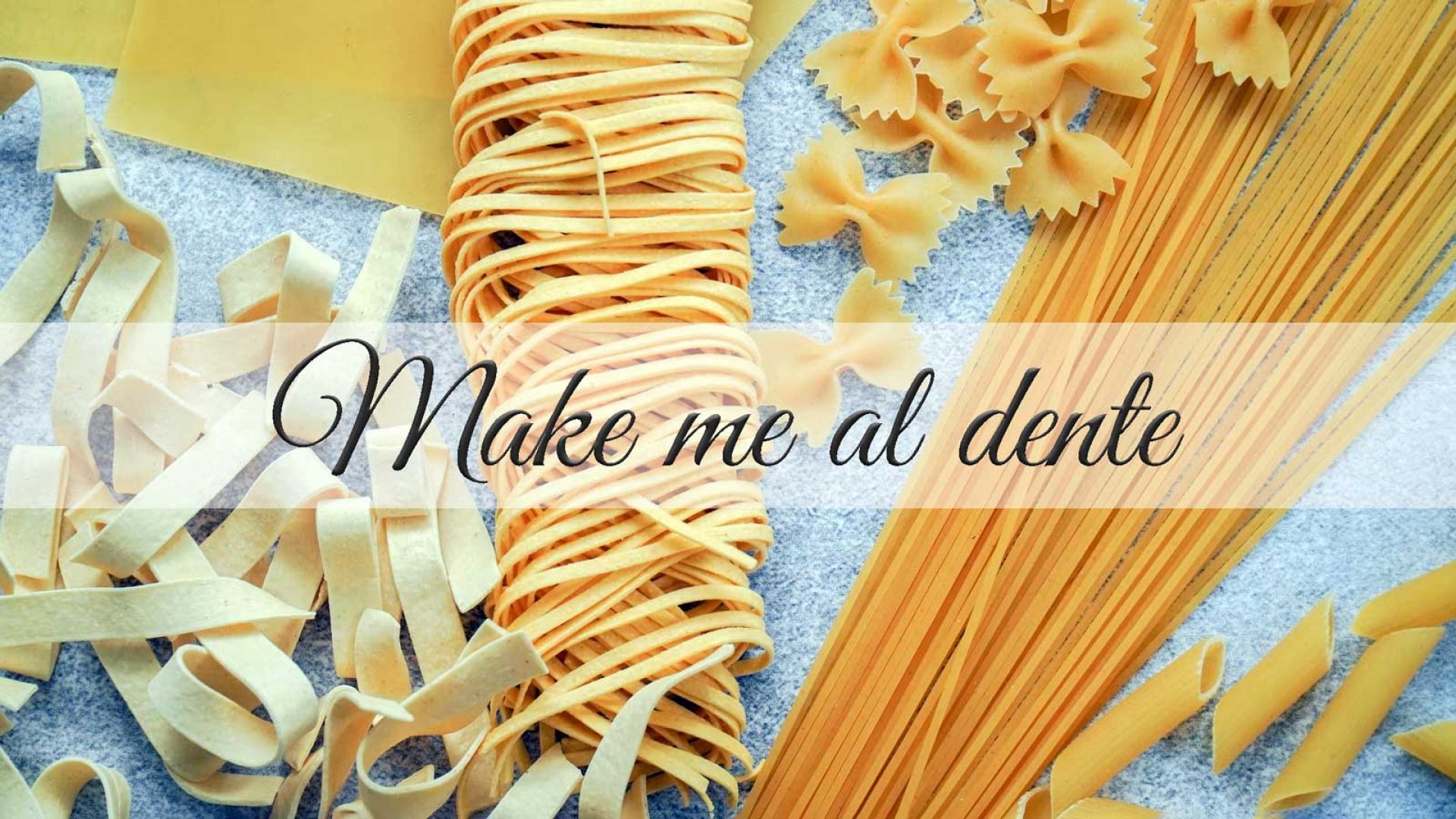Cooking pasta al dente is something many people find challenging. Even when we follow the cooking instructions in the package of store-bought pasta noodles they don’t always turn out right. I learned a trick that guarantees your pasta will never be undercooked or overcooked and soggy.
Boil water in a pot.

The size of the pot and the amount of water really depends on how much pasta you are cooking. If you are cooking just one serving then a smaller pot and less water would obviously be better. A common question I encounter is how do we know how much water to put in?
How much water do I put in?
If you are cooking pasta like fusilli, penne, bowties, or macaroni here is a trick I learned.
- While the pot is dry, pour in the pasta and shake the pot until it is evenly distributed.
- Take note of how high up the pasta goes and then transfer it to another container.
- Fill the pot with water up to where the pasta reached plus 1 inch.
When cooking pasta like spaghetti, capellini (angel hair), fettuccini, or lasagna, I honestly just eyeball it following the same principle as above. If you are cooking the whole package, following the package instructions also helps.
Can I put the pasta in yet?

Set the pot to boil. Sometimes we get impatient and want to put the pasta in when the water starts to smoke. DON’T DO THAT. Literally, wait for the water to bubble and boil.
Before putting in the pasta add the salt and a little oil to the water. The salt will add flavor to the pasta and the oil will help in preventing the pasta from sticking.
Is there a proper way to put the pasta in?
 Keep the heat setting on high.
Keep the heat setting on high.
For long pasta noodles like capellini, spaghetti, and fettuccini, the trick is to hold the pasta in a fist, standing (the pasta noodles, not you) in the middle of the boiling water and then letting go, allowing the pasta noodles to fan out in the pot.
Do not make the Italians angry. DO NOT BREAK THE NOODLES TO FIT THE POT! As the noodles absorb the water, they will all slide into the pot and fit, I promise. Once the noodles have settled in the water mix them slightly so that they get coated in the oil.
If you are cooking fresh noodles you just put them in carefully so as not to tear them. For other types of pasta, you can just pour them in and mix them slightly to evenly distribute them in the pot.
How long do we cook this?
 This is where several opinions usually come in but this is what we’ve found works the best. First of all, make sure the heat is set on high. set your timer for TWO (2) MINUTES.
This is where several opinions usually come in but this is what we’ve found works the best. First of all, make sure the heat is set on high. set your timer for TWO (2) MINUTES.
Yes, I said just TWO Minutes. Cook your pasta uncovered on high heat. While waiting for the timer to ping you can start preparing your sauce and toppings.
Once the timer pings turn off the heat, stir your noodles (which at this point will not look cooked yet), and then cover the pot. Set your timer once again depending on the kind of pasta you are cooking from four (4) to eight (8) minutes. Pasta noodles like capellini need less time so I usually let them sit in the hot water for three (3) to four (4) minutes. With thicker pasta like penne, rigate, or fusilli you can max out the time.
Take note that at this point the pasta is cooking in the hot water but no extra heat is added. This is an important step to ensure your noodles are al dente. In the meantime, prepare your sauce and toppings. My go-to is aglio e olio as it is quick and easy. I just add whatever meat I have on hand such as marinated chicken, sausage, or leftover pork chop. You can also prepare your sauce ahead of time if it will take longer than five (5) minutes to prepare.
Once the timer pings again, your pasta is ready to be served! If you are mixing your sauce in directly then just drain the water and put the sauce and pasta together. Make sure the pasta is drained well or your dish will be watery. If you are serving the pasta and the sauce separately then aside from draining the water, you will also want to run the pasta under running water to stop the cooking process. Remember, while there is heat, the pasta will keep cooking!

The only thing you have to do now is eat!
* except for the last photo, all the other photos were taken from Unsplash.com.





